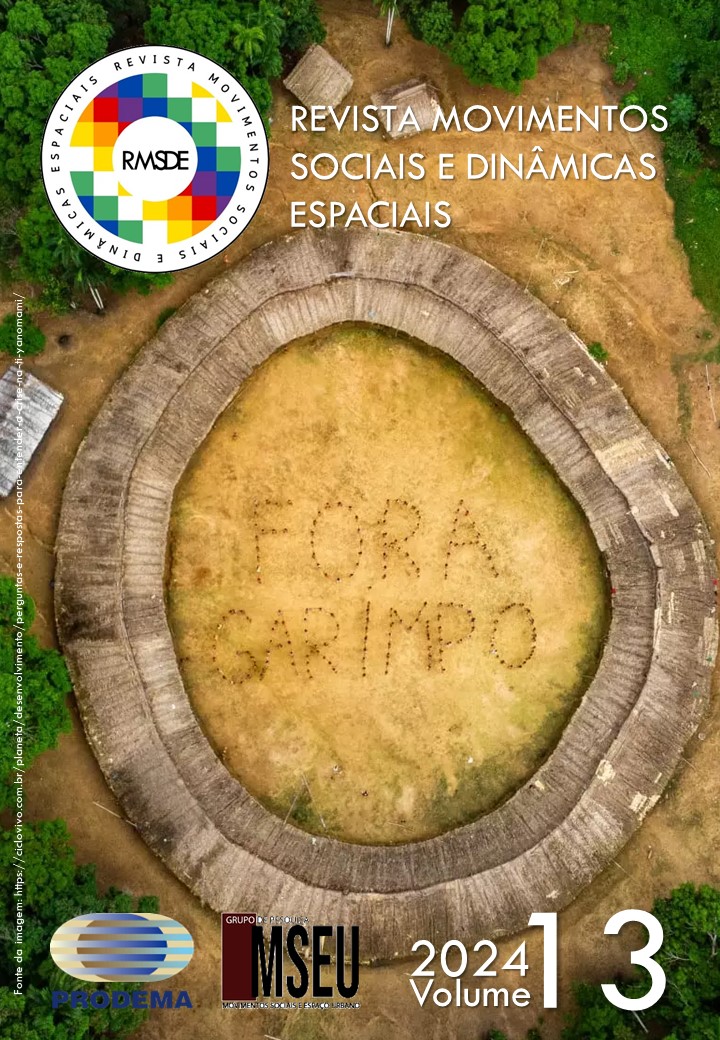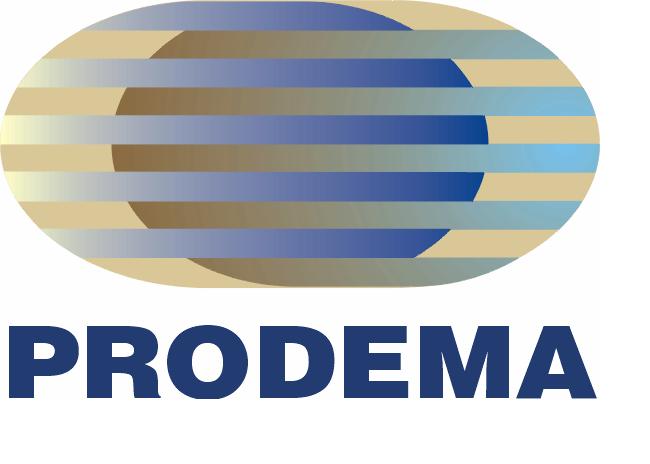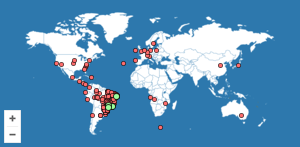Socio environmental perception of Parque Caiara urban equipment
DOI:
https://doi.org/10.51359/2238-8052.2024.262522Keywords:
environment, social sciences, bibliometricsAbstract
The objective of this article is to evaluate the use and socio-environmental perception of the Parque Caiara urban equipment, located in the Pernambuco city of Recife, among the local population and passersby through the application of a semi-structured questionnaire. The survey contains closed and open questions and was carried out among the population who use the equipment at least twice a week and aged ten years or over. Through the qualiquantitative approach, important data related to the socio-economic profile of users was obtained, involving age group, level of education, type of work, profession and family income, as well as enumeration of the positive and negative points of the park and suggestions for improving Caiara . Furthermore, we could analyze the environmental perception of users regarding the issue of water pollution, since the park is crossed by the Cavouco stream that flows into the Capibaribe river. In this way, it was possible to collect and discuss relevant data to propose an effective requalification of the equipment. As a result, it was found that the site has significant importance in the environmental, sociocultural and sporting spheres with various sports and leisure facilities. However, for Caiara to consolidate itself as a reference urban facility, it is necessary to adapt and propose new urban furniture, uses and services suited to the real needs of the community based on listening to the local population and passers-by who use the park.
References
Bezerra, A., Santos, T. M., Silva, C. E. M.. Parques Urbanos: proposta de elaboração de índice de qualidade como subsídio à gestão. Revista Metodologias e Aprendizado, v. 6, p. 467-482, 2023. doi: 10.21166/metrape.v6i.3820
DIAS, G. F. Educação Ambiental: princípios e práticas. São Paulo, Global, 1994.
Dumazedier, J. Sociologia empírica do lazer. São Paulo: Perspectiva, 1974.
Ferreira, M. L.; Pereira, E. E.; Monteiro, P. Ciclagem de nutrientes numa floresta urbana no município de São Paulo, SP. Periódico Técnico e Científico Cidades Verdes, v. 2, n. 2, p. 1-17, 2014. doi: https://doi.org/10.17271/23178604222014709
Gomes, R. M. O lazer e as práticas culturais: da ética do trabalho à estética do consumo. In: Olhares sobre o lazer. Coimbra: CEB, p. 11-23, 2007.
Guest, A.; Bunce, A.; Johnson, L. How Many Interviews are Enough? An experiment with data saturation and variability. Field Methods, v. 18, n. 1, p. 59-82, 2006. doi: https://doi.org/10.1177/1525822X05279903
Lamano-Ferreira, A. P. N.; Ferreira, M. L.; Francos, M. S. et al. Espaços residenciais urbanos e suas implicações na conservação da biodiversidade. In: Benini, S. M.; Rosin, J. A. R. G. (Eds.), Estudos Urbanos: uma abordagem interdisciplinar da cidade contemporânea. Tupã: ANAP, p. 349-362, 2015.
Matsudo, S. M.; Matsudo, V. K. R.; Barros Neto, T. L. Efeitos benéficos da atividade física na aptidão
física e saúde mental durante o processo de envelhecimento. Revista Brasileira de Atividade Física & Saúde, v. 5, n. 2, p. 60–76, 2012. doi: https://doi.org/10.12820/rbafs.v.5n2p60-76
Prefeitura da Cidade de Recife. Serviços para o cidadão. Recife: 2023. Disponível em: https://www2.recife.pe.gov.br/servico/iputinga?op=NTI4Mg==. Acesso em: 15 nov. 2023.
Thiry-Cherques, H. R. Saturação em pesquisa qualitativa: estimativa empírica de dimensionamento. Revista Brasileira de Pesquisas em Marketing, v. 3, p. 20-27, 2009.
UNICEF. Importância da educação ambiental: o papel das escolas na educação climática. 2022. Nova York: UNICEF, 2022.
Downloads
Published
Issue
Section
License
Copyright (c) 2024 Simone de Paula Silva, Maria do Socorro Bezerra de Araújo, Ronaldo Faustino da Silva

This work is licensed under a Creative Commons Attribution 4.0 International License.
Autores mantêm os direitos autorais e concedem à revista o direito de primeira publicação, com o trabalho simultaneamente licenciado sob a Licença Creative Commons Atribuição 4.0 Internacional (CC BY 4.0) que permite o compartilhamento do trabalho com reconhecimento da autoria e publicação inicial nesta revista.






















